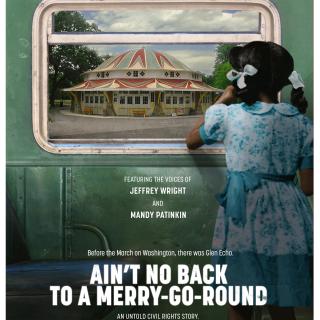Advertisement
If I told you Moonlight is about an African-American boy growing up in a world of drugs and poverty, you’d probably begin to form an image of the film in your mind. And that image probably would be wrong.
Director/screenwriter Barry Jenkins has put together a movie so sensitive, so lyrical and so different from anything we’ve seen that there’s no way to avoid being taken by surprise.
Moonlight tells the sad tale of Chiron, a boy growing up in a scruffy neighborhood of Miami. Divided into three chapters, the film follows him into high school and finally into adulthood. At all three stages of his life, he struggles with loneliness brought on by his own—and other people’s—inability to accept him for who he is.
As a boy, Chiron (Alex R. Hibbert) is nicknamed Little due to his small size and is constantly bullied for being somehow different from the other boys. A sympathetic classmate named Kevin (Jaden Piner) advises him to stick up for himself, but Chiron’s mother, Paula (Naomie Harris), is too consumed by her drug habit to pay attention to his needs.
Then Chiron meets Juan (Mahershala Ali), a local drug dealer who takes an interest in the kid. Scared and suspicious, Chiron greets the man’s questioning and concerns with cautious silence, but Juan remains patient. With help from girlfriend Teresa (Janelle Monae), he begins to win the boy’s trust, only to be attacked by Paula in a fit of maternal jealousy and anger.
“You gonna raise my son?” she challenges him. “You gonna tell him why other boys kick his ass all the time?”
Tough and ruthless on the street but kind and gentle toward the boy who desperately needs a friend and mentor, Ali’s Juan is as far removed from previous movie drug dealers as Moonlight is from previous movies about black urban life. Unfortunately for us—but more especially for Chiron—he disappears by the time the boy enters high school.
It’s here that Chiron (now played by Ashton Sanders) begins to realize the reason he doesn’t fit in is because he’s gay. Again, Kevin (Jharrel Jerome) is an ally. Yet forces stronger than either of them conspire to prevent Chiron from finally finding his place in the world.
The result is that when we meet Chiron as an adult (Trevante Rhodes), he’s undergone such a drastic transformation as to be nearly unrecognizable. Only his underlying ache for love and connection remains unchanged.
Throughout the film, Jenkins’s dialogue and direction and a strong cast create characters and moments that are indelible. Juan’s surprising kindness, young Chiron’s shell-shocked silence, Paula’s combination of motherly love and drug-fueled indifference: All combine to form a complex portrait of humanity under pressure.
Equally crucial to the film’s personality is James Laxton’s intimate and innovative cinematography. A particularly memorable scene: When Juan coaxes young Chiron into the ocean for his first swimming lesson, the action is recorded at and sometimes just beneath the surface of the water, subtly symbolizing the boy’s struggle to remain afloat in a hostile world.
It’s only in the final half hour or so that the photography begins to take a more conventional approach, weakening a third act that already seems disconcertingly removed from what came before. But even with that minor misstep, Jenkins and Laxton’s vision of a troubled life remains moving, engrossing and startlingly original.
Rating: 4 stars (out of 5)
Moonlight (rated R) opens Nov. 11 at Easton Town Center 30 and Gateway Film Center, and Nov. 18 at the Drexel Theatre.



